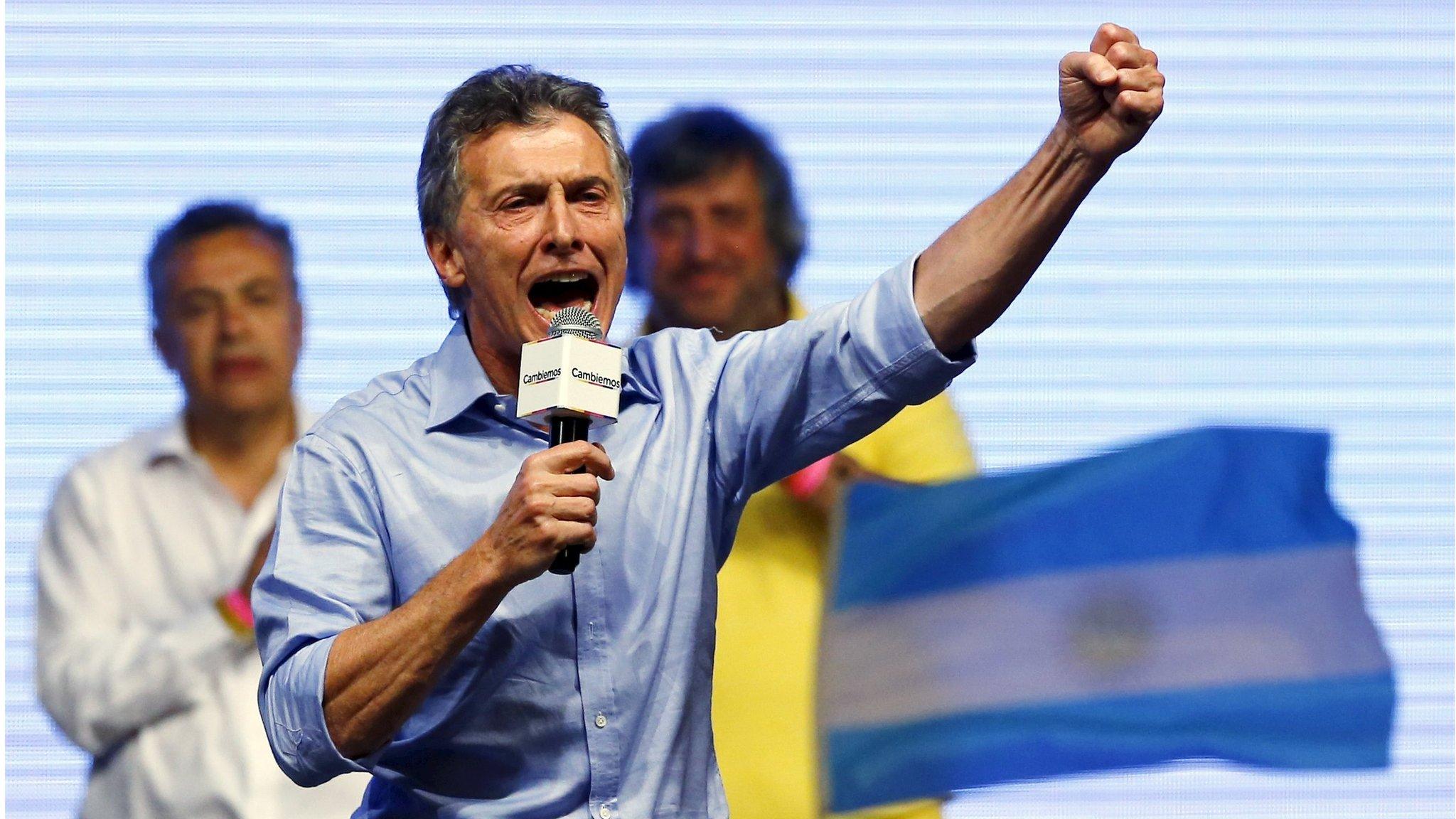Ecuador's new president will tackle economy... and Julian Assange
- Published
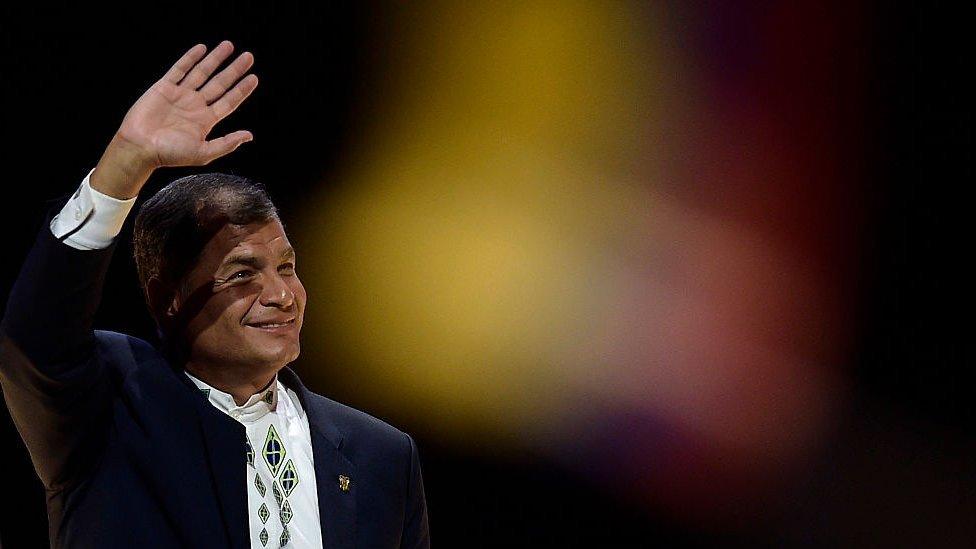
Outgoing president Rafael Correa will hand over power in May
Ecuadoreans are voting to elect a successor to President Rafael Correa, after three terms of what he and his administration have dubbed "21st-Century socialism".
The vote is a run-off between left-wing Lenin Moreno, who is backed by President Correa, and conservative Guillermo Lasso.
Mr Moreno is ahead in the latest opinion poll.
But with 16% of voters saying they are undecided, the result is hard to call.
Mr Moreno won the first round, and an opinion poll released last week put him on 52.4%, next to Mr Lasso's 47.6%.
Voting is mandatory in Ecuador and the winner will take office on 24 May.
President Correa cast his vote in the capital Quito. He has campaigned for Mr Moreno, his former vice-president.

The contenders
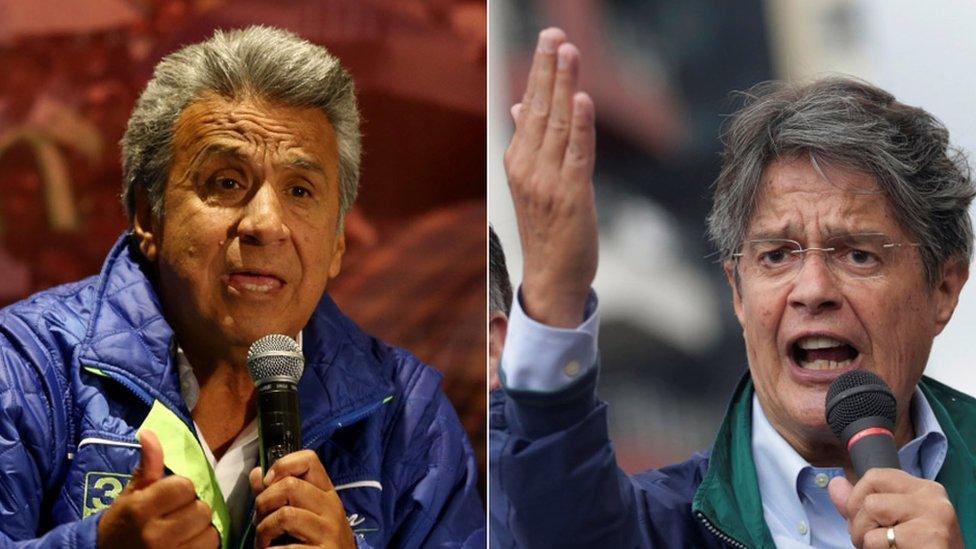
Lenin Moreno (left) won more votes than Guillermo Lasso in the first round
Lenin Moreno:
63 years old, left-wing, former vice-president
Close ally of outgoing President Rafael Correa
Became paraplegic after being shot in the back after being robbed in 1998
Wants to increase employment opportunities and give all Ecuadoreans the chance to go on to higher education
Has written books with with titles such as "Being Happy is Easy and Fun"
Guillermo Lasso:
61-year-old former banker
Youngest of 11 children
Wants to create a million jobs by promoting foreign investment and has promised to cut taxes for big companies
Plans to make Ecuador's central bank independent of the government
Has vowed to evict WikiLeaks founder Julian Assange from the Ecuadorean embassy in London if he wins

The 'pink tide' ebbs
When he was first elected in 2007, Mr Correa was one of a group of left-wing leaders in power in Latin America, including Argentina's Nestor Kirchner, Bolivia's Evo Morales, Brazil's Luiz Inacio Lula da Silva, Cuba's Raul Castro, Nicaragua's Daniel Ortega and Venezuela's Hugo Chavez.
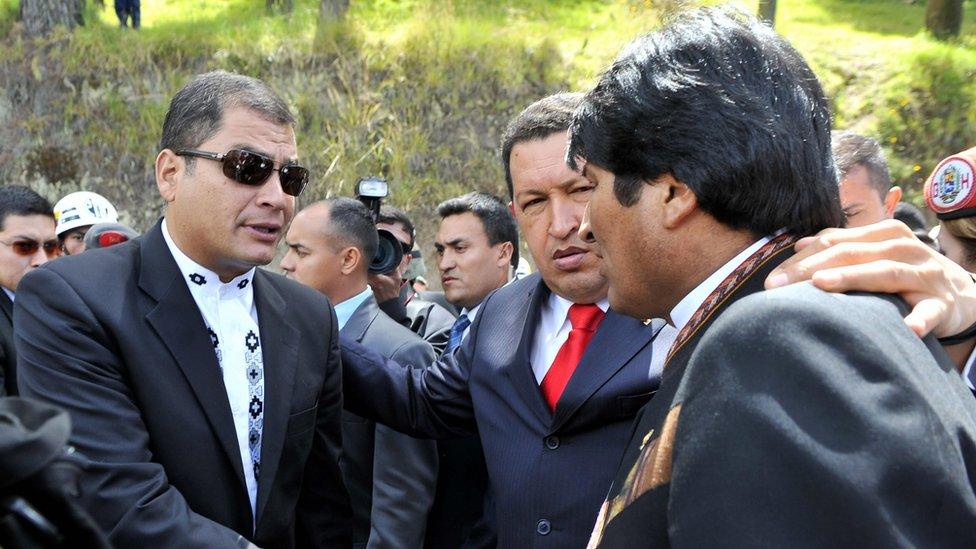
Rafael Correa (l) was once part of the so-called "pink tide" of left-wing Latin American leaders, which included Venezuela's Hugo Chavez (c) and Bolivia's Evo Morales (r)
A decade on, Argentina and Brazil are led by conservative presidents, Venezuela is in political turmoil, and Evo Morales is on his last term after Bolivians rejected a proposal to change the constitution to allow him to run again.
What will happen to Julian Assange?
The election winner will also decide on the fate of Wikileaks founder Julian Assange, who has being living in the Ecuadorean embassy in London since 2012.
President Correa gave him asylum so he could avoid extradition to Sweden, where he was wanted for questioning over a sex allegation, which he denies.
Mr Assange feared he would end up being sent to the US, where he is wanted for leaking state secrets.
Mr Lasso has said he will kick Julian Assange out of the embassy within 30 days if he wins.
Mr Moreno said he would let him stay as long as he refrained from releasing material on "friendly" countries.
Who is backing whom?
Mr Correa's leftist Alianza PAIS (Country Alliance) party has thrown its weight behind Mr Moreno.
Christian-Socialist politician Cynthia Viteri, who was eliminated in the first round in February, has urged her voters to get behind Mr Lasso.
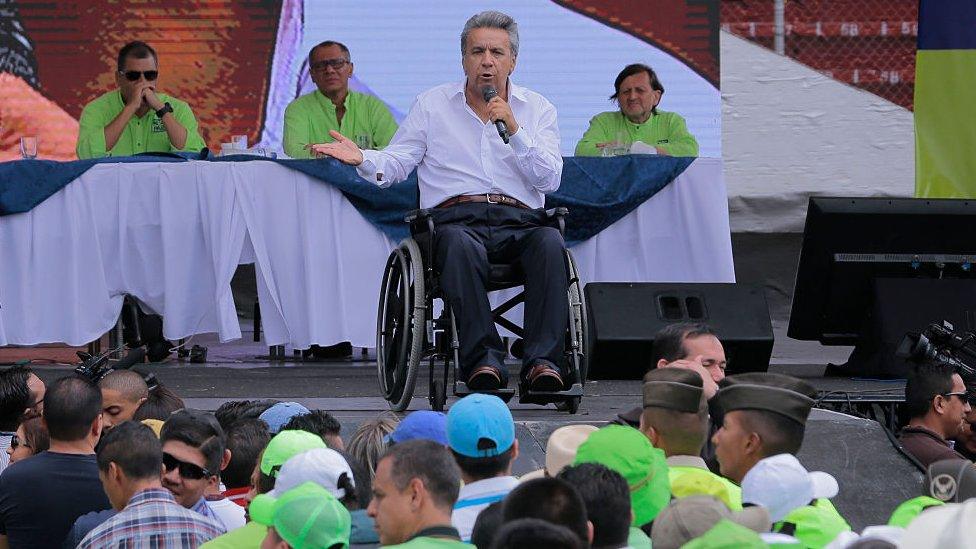
Lenin Moreno, who became paraplegic after being shot during a robbery in 1998, has set out to improve the rights of people with disabilities
Despite having been a key figure in Mr Correa's cabinet between 2007-2013, Mr Moreno has sought to differentiate himself from the outgoing leader.
Observers say he is less confrontational than Mr Correa and they suspect he may try to jettison some aspects of his predecessor's socialist policies.
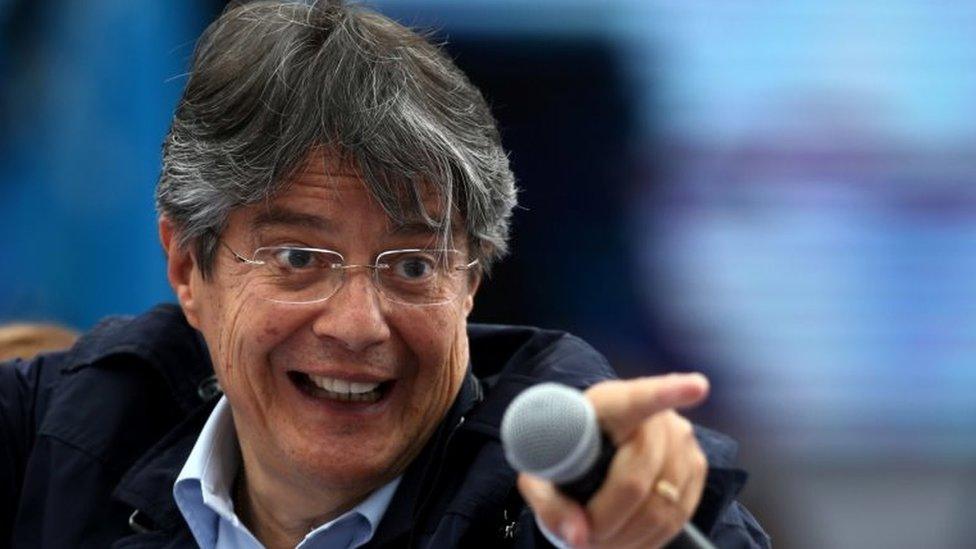
Guillermo Lasso came second in the 2013 presidential elections
Mr Lasso is running for the Creando Oportunidades (Creating Opportunities) party.
He previously ran against Mr Correa in 2013.
What is President Correa's legacy?
Rafael Correa was elected in 2007 on a promise of bringing radical social and political reforms to Ecuador.
He increased government spending on social programmes and looked to diversify Ecuador's trade and political relationships.
He forged close ties with the left-wing regional group Alba, which includes Cuba, Nicaragua and Venezuela among others.
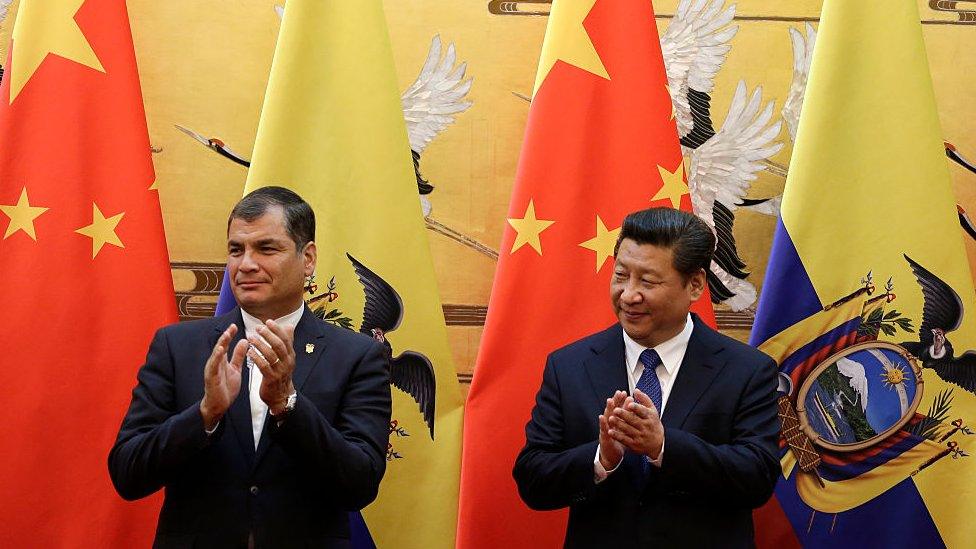
China became Ecuador's main creditor after Quito's ties with the US cooled
He also moved Ecuador much closer economically to China, which is now one of the country's major creditors and trade partners.
Mr Correa has been credited with reducing poverty until 2014, when the oil price slump hit government revenue and its ability to finance poverty reduction programmes.
But recent corruption scandals and Mr Correa's frequent clashes with the media have produced some disillusionment.
One poll suggests 70% of Ecuadoreans want "important changes" to be made.
Economic recovery is likely to be a top priority for Ecuador. The oil-exporting country has suffered from a drop in international oil prices and has seen its GDP contract 1.7% in 2016.
- Published19 October 2016
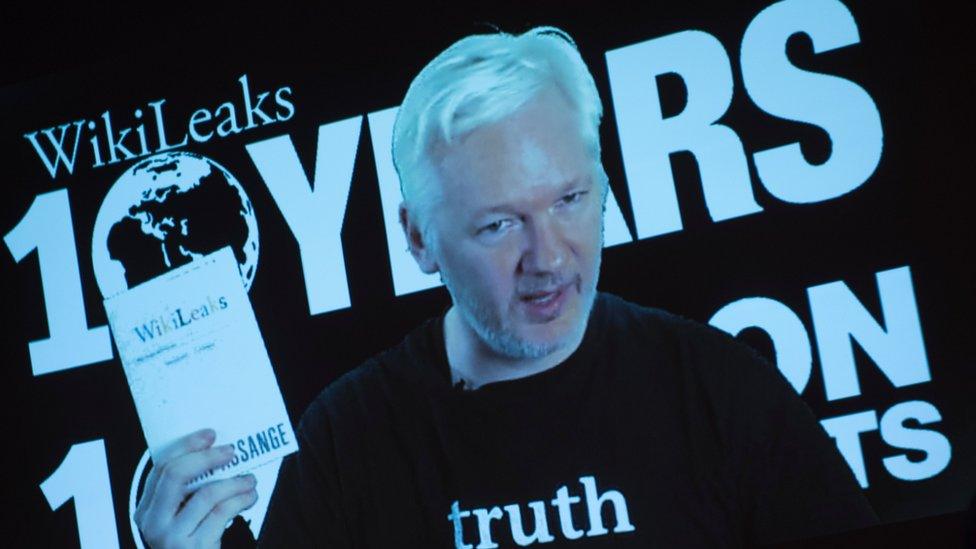
- Published31 March 2017
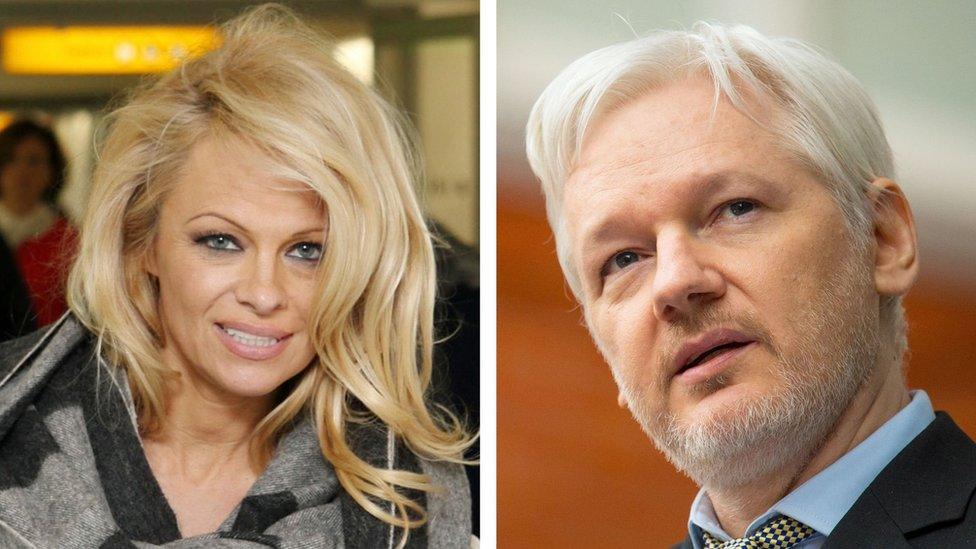
- Published30 January 2015
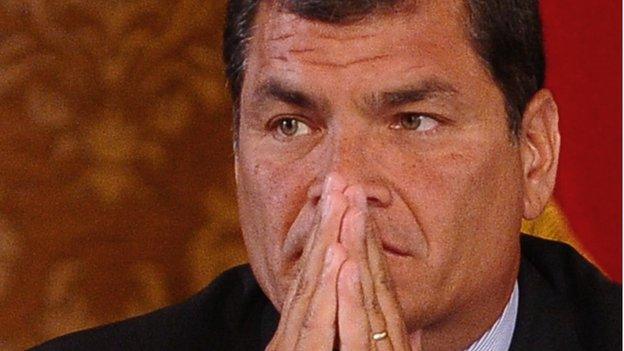
- Published11 December 2015
